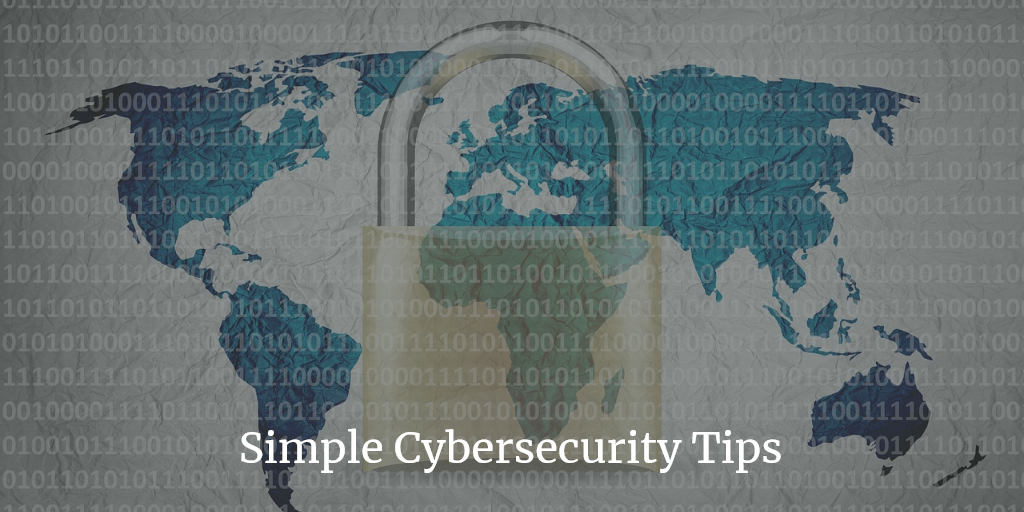Small online business owners face exceptional challenges in many different areas of their business, and cybersecurity is no exception to that. Be it understanding the risks or finding correct resources for modifying that risk; several small business owners struggle to keep their small online enterprise safe from the threats present in the online world.
Small business margins are usually quite less, making leaving room in the budget for cybersecurity very difficult. But if ignored, it could lead to disastrous consequences. The struggle to stay cyber-safe is attributable to the necessity for small businesses to work within a budget.
Budget curbs frequently mean that small business owners are responsible for making choices in fields in which they may lack expertise and proper knowledge. Safeguarding your budding enterprise against cyber threats is crucial.
Today’s cyber threat environment is dynamic and rapidly changing to include new and more sophisticated paths. This is the reason why small and medium-scale businesses are principally vulnerable to security breaches.
A common fallacy for small businesses is the idea of security through anonymity or scale that your business is too small or unknown to be a target. This, however, is not the case.
As cyber attackers progressively automate their attacks, it’s easy for them to target hundreds and thousands of small businesses for the simple reason that small businesses often have less rigorous cyber defenses and security making them easy to break in.
This makes small online businesses especially venerable and easier to target hackers than bigger establishments. The ongoing global COVID-19 pandemic also generated new openings for attackers to raid websites and online businesses, particularly as companies rapidly adjusted to remote work and work from home.
As these cyber thugs and attackers are growing more determined, businesses should strengthen their defenses and keep these unwanted elements out. Given the interrelationship of networks and devices in today’s cluttered digital world, the privacy of information and security of data is of top concern.
Recent cyberattacks point to a focus on phishing and privacy hacks and data compromises.
Cybercriminals have been found to pretend as genuine organizations to get data from businesses by sending fake emails and inserting malicious programs into networks.
While quite a few small businesses have had to face attacks of this count in the past, the digital boom and more complexity in economic tools of the trade have called attention to the security gaps in the businesses of small scale.
Small businesses are also at risk of losing more from being hit with a harmful cyber-attack. In this article, we’ll take you through some of the steps you can take to protect and secure your small business online from external cyber-attacks.
- Having a strong password is the first step.
Illegal access is possibly one of the major problems for anyone who data online. The consequences for those who are affected by these break-ins can include the loss of precious data, financial information, bank accounts, money, or even their identity.
Devices today, such as phones, computers, tablets etc., are potentially vulnerable to misuse by unsanctioned users, and therefore, users should always protect them with passwords. The same goes for your data online on websites, social media and online shopping accounts.
A password is the first line of defense against illegal access to your data and information. Many small businesses are vulnerable to attacks by password hacking, and it is a major issue if ignored and not addressed on time.
Passwords that are very simple, basic and weak can easily be cracked and hacked by an attacker. A weak password makes it easy for attackers online to gain access to the users’ accounts, leading to fraudulent purchases or data theft.
To avoid such circumstances, you must keep updating passwords and ensure that the new password is strong and complex, like a combination of upper- and lowercase letters, numbers and special characters.
As long as the password to gain access is strong, unique and complex, it is much harder to break in. It might seem like one of the most basic security measures, but a surprising number of people still don’t follow the right practices when it comes to passwords and ends up getting their data compromised.
- Have frequent security training for your employees
Even after having all the security measures and precautions in place, people might still make mistakes in your business’s cybersecurity protocol.
Most of the attacks and breaches that take place are started by phishing emails that trick your employees into installing some malicious program, malware or sharing details that give the attackers access to your business’s sensitive data.
Cybersecurity training helps your employees to protect themselves and the business against cyber-attacks and threats. Regularly training your employees on cybersecurity empowers them with updated know-how on identifying and handling a cyber threat or attack.
By making employees recognize and remove cyber threats, you as a business owner are reinforcing the most susceptible link in the chain. By doing so, phishers will be less interested in attacking your organization and target a different entity.
- SSL certificate when remote working
As businesses and organizations prepare for what life looks like in a post-pandemic world, remote working is becoming more common, but with this rises many security issues.
It’s fair to say that, especially at the start of the pandemic, the mass shift to home working caught many businesses by surprise, and they had to quickly ensure that their staff could fulfill their basic tasks while not in the office.
A remote workforce comes with numerous hazards, with employees relying on their home networks that are not secured – and sometimes their own devices to work. Security was consequently often a secondary apprehension for business owners at this time and had arguably been playing catch up ever since.
With remote working have less oversight of exactly what your employees are doing daily, so you must put precautions and safeguards in place to guarantee they’re working as securely as possible, keeping the threat of a cyber-attack at bay.
For example, you could provide them with an official work computer rather than asking them to use their device. By doing so, you can be sure that they’re using a secure device and not a compromised system.
You should use an SSL certificate. SSL is short for Secure Socket Layer and is widely used in websites, emails and mobile apps. Online business owners are constantly adding innovative technologies such as multi domain SSL certificate to their platforms to stay safe and secure from hackers and cyber attackers.
SSL certificates offer a secure and reliable transmission layer protecting your data. SSL certificate works side by side with the HTTP protocol to provide a more protected form of communication which is the ‘HTTPS’ procedure.
If you have an SSL certificate, you ensure that any communication between the server and browser is encrypted and protected from hacking. In addition, SSL shields your site’s sensitive data like credit information, debit card details, bank credentials, usernames, and passwords from cybercriminals and attackers. We suggest that you invest in premium yet comodo positive SSL wildcard certificate available with reliable SSL providers such as SSL2Buy, etc.
- Back the data, always!
The data and information need to be properly secured. There are several threats out there, like the ransomware attack, where attackers stop a business from accessing their system until they pay a sum or ransom. But there is also the risk of other viruses, malware and programs deleting or corrupting important files. This makes having all your essential data in a single place without any backups extremely hazardous.
You need to frequently back up all the important files and data of your business in a secure place and separate from your existing system. Think of it as insurance for your data. Data backups help reinstate and restore data after files that might have undergone damage or deletion in the event of an attack or data breach. Database backups are crucial for safeguarding against data loss and data theft that can unsettle your business operations.
- Software and plugins need your attention:
A lot of small businesses use software and plugins to simplify operations. But this software and plugins are susceptible to cyber threats. Though these plugins and software streamline operations of your business are very important, you need to take extra care of the security gaps and loopholes they might have.
It’s imperative that you carefully check all software before using it. As a business owner, you also need to ensure that it has all the proper credentials and obeys applicable standards. You need to understand what safety measures the software has in place and how it would protect your business. By doing so, you ensure the safety of your data and plugging any security hole that might exist.
Conclusion
These are some tips and techniques to ensure and build strong cybersecurity for your small business online. While there are several things you can do apart from the steps mentioned above, you need to understand that as a small business owner, you need to take cybersecurity seriously. Ignoring this crucial process could cost you and your business very dearly. Therefore, do not take the risk and start building your cybersecurity without further delay and successfully securing your small business!


